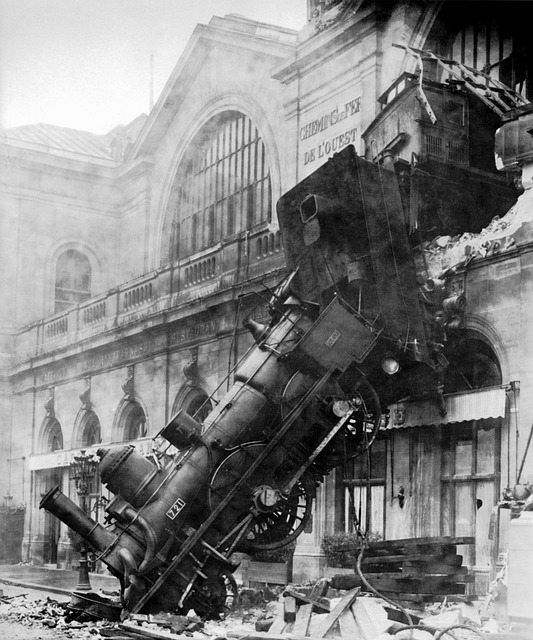In The Bronx, where rideshare services are prevalent, understanding Rideshare Safety Litigation and trucking company liability is crucial for residents and businesses. This involves holding rideshare companies accountable for driver insurance, background checks, and safety standards, as well as addressing the liability of trucking companies involved in accidents with contracted drivers or commercial vehicles. With complex legal issues surrounding these cases, ensuring transparency and accountability is key to protecting passenger safety. The Bronx's legal framework protects riders' rights and holds trucking companies responsible for their drivers' actions, especially regarding common accident causes like driver distraction and fatigue.
“Rideshare safety litigation in The Bronx has become a pivotal focus, reflecting broader concerns about passenger protection. This article delves into the complex world of trucking company liability, offering a comprehensive overview of how these legal battles shape passenger safety. We explore the role of trucking companies in ensuring secure ridesharing experiences, examining their responsibilities and potential accountability under New York State laws. By analyzing real-world case studies, we reveal the impact of rideshare accidents and highlight the rights and protections available to passengers, specifically focusing on The Bronx.”
- Understanding Rideshare Safety Litigation: A Overview
- The Role of Trucking Companies in Passenger Safety
- Legal Framework: Holding Trucking Companies Accountable in The Bronx
- Common Causes of Rideshare Accidents and Their Impact
- Passenger Rights and Protections in New York State
- Case Studies: Notable Rideshare Safety Litigation in The Bronx
Understanding Rideshare Safety Litigation: A Overview

Rideshare Safety Litigation refers to legal actions taken against rideshare companies and, in some cases, trucking companies in liability claims related to accidents or injuries involving their drivers and passengers. These lawsuits aim to address safety concerns within the rapidly growing rideshare industry. In the Bronx, where a significant number of rideshare services operate, understanding these legal aspects is crucial for both residents and businesses.
The focus often lies on determining negligence and accountability. Rideshare companies are increasingly held liable for ensuring their drivers maintain proper insurance coverage, undergo thorough background checks, and adhere to safety standards during operations. Similarly, trucking company liability plays a significant role in cases involving commercial vehicles or drivers contracted by rideshare platforms. This overview highlights the complex legal landscape surrounding rideshare services, emphasizing the need for transparency and accountability to protect users’ safety across The Bronx and beyond.
The Role of Trucking Companies in Passenger Safety

Trucking companies play a significant role in passenger safety, especially in areas like The Bronx where rideshare services are prevalent. As major players in the transportation industry, their responsibility extends beyond simply transporting goods; it includes ensuring the security and well-being of passengers. With the rise of rideshare litigation, holding trucking companies accountable for their drivers’ actions is more crucial than ever.
In cases of accidents involving rideshare drivers, especially those employed by large trucking corporations, establishing liability can be complex. These companies often have extensive operations, with drivers operating under contract. Therefore, understanding the contractual agreements and safety protocols these trucking giants enforce is essential in any litigation process. This includes evaluating driver training programs, vehicle maintenance standards, and response procedures to ensure compliance with passenger safety regulations, particularly in densely populated urban areas like The Bronx.
Legal Framework: Holding Trucking Companies Accountable in The Bronx

In The Bronx, as across many urban areas, rideshare safety has become a pressing issue, leading to increased scrutiny and legal action against trucking companies. These businesses, while not directly employing drivers, play a significant role in the industry by providing the vehicles and logistical support that enable rideshare operations. Holding them accountable is crucial in ensuring passenger safety. The legal framework in The Bronx holds trucking companies liable for any negligence or misconduct on the part of their drivers, particularly when it results in accidents or injuries involving rideshare passengers.
Local laws and regulations have been implemented to strengthen this accountability. These measures include stricter background checks for drivers, enhanced training programs, and more robust reporting mechanisms. By holding trucking companies responsible, The Bronx aims to create a safer environment for rideshare users, ensuring that negligence does not go unpunished and that victims of accidents have recourse through legal avenues.
Common Causes of Rideshare Accidents and Their Impact

Rideshare accidents, like any other vehicular collision, often stem from a variety of factors. Some common causes include driver distraction, speeding, failure to yield, and poor weather conditions. In the context of rideshare services in The Bronx, where bustling streets and heavy traffic are the norm, these issues can be exacerbated. Driver fatigue is another significant concern; given the demanding nature of rideshare work, drivers may push themselves too hard, leading to reduced reaction times and an increased risk of accidents.
The impact of such accidents can be severe. They not only result in physical injuries but also have financial implications for all parties involved. In cases where a trucking company is liable, the consequences can be particularly profound. Trucking companies in The Bronx are responsible for ensuring their drivers adhere to safety protocols and maintain well-maintained vehicles. Negligence on their part can lead to devastating outcomes, including long-term disabilities, medical bills, lost wages, and even wrongful death. Understanding these causes and their effects is crucial in navigating Rideshare Safety Litigation, especially when dealing with trucking company liability in The Bronx.
Passenger Rights and Protections in New York State

In New York State, including The Bronx, passengers using rideshare services like Uber or Lyft are protected by certain laws designed to ensure their safety. These regulations establish clear guidelines regarding passenger rights and protections, holding trucking company liability accountable. One key aspect is the requirement for drivers to maintain a reasonable level of care, ensuring passengers’ security during transit.
Passengers have the right to expect a safe journey, free from negligence or intentional harm. In case of any incident, including accidents, assault, or property damage, The Bronx’s legal framework provides a framework for seeking compensation and justice. Understanding these rights is crucial, especially considering the growing prevalence of rideshare services in the area, as it empowers passengers to take proactive measures to safeguard their well-being while using these platforms.
Case Studies: Notable Rideshare Safety Litigation in The Bronx

In The Bronx, rideshare safety litigation has been a significant focus due to its high density of traffic and diverse range of transportation options. Notable cases have highlighted the complex web of liability when it comes to rideshare accidents. For instance, in a recent case, a passenger was injured in a collision involving a rideshare vehicle and a trucking company vehicle. The lawsuit argued that the trucking company bore some liability due to its driver’s negligence, as well as the failure of the rideshare company to properly vet and monitor its drivers.
This case study underscores the need for clear legal frameworks addressing Trucking Company Liability in The Bronx. As rideshare services continue to grow, so does the potential for disputes involving multiple parties. Understanding the liability dynamics is crucial for both riders seeking justice and transportation companies aiming to maintain safety standards. These real-world examples serve as a powerful reminder of the intricate relationships between different actors in the transportation industry.
In conclusion, rideshare safety litigation in The Bronx highlights the critical role of trucking company liability in ensuring passenger protection. By understanding common accident causes and leveraging legal frameworks, such as those holding trucking companies accountable, passengers can exercise their rights and enjoy enhanced safety measures. Case studies demonstrate the significant impact of these legal actions on improving rideshare safety standards across New York State.
